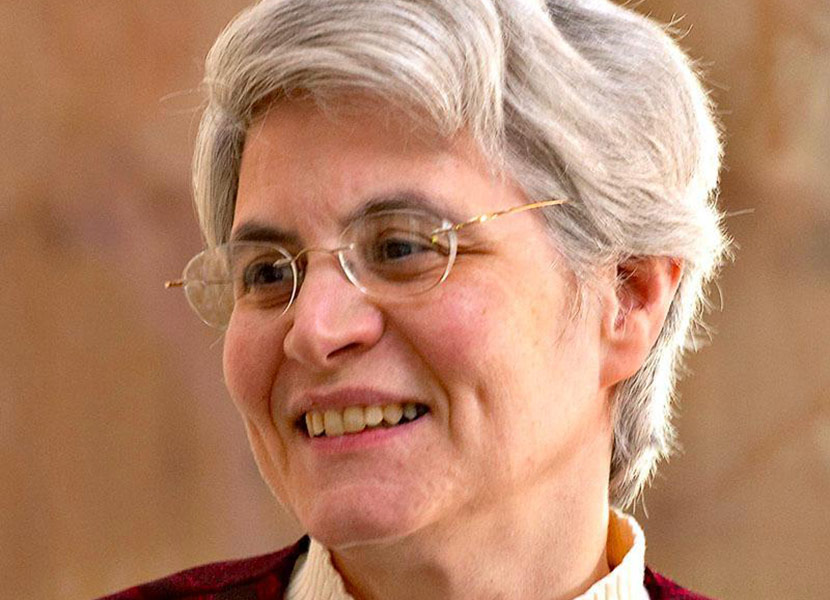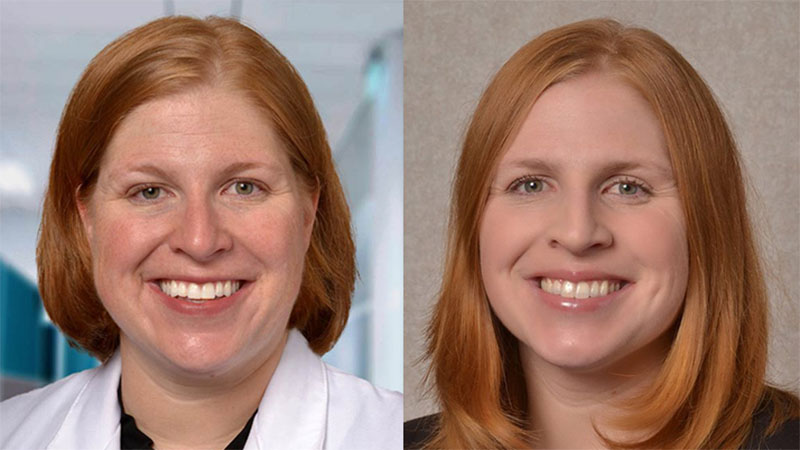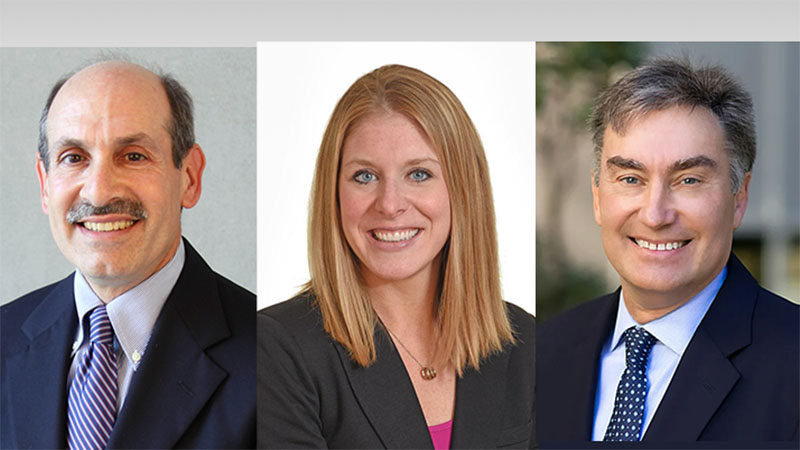
On this week’s GeriPal podcast, we have invited Muriel Gillick to discuss the state of our current health care system for older adults as they journey through our health care system. Dr. Gillick is a professor of medicine at Harvard Medical School, geriatrician, and palliative care clinician. She is also an author of multiple books, including one that will be coming out in October called “Old and Sick in America: The Journey Through the Health Care System.” Here is a link to an article about blacklisting performers by the House Un-Amarican Activities Committee in the 1950’s (including Pete Seeger).
*Update 12/5/17 – the book is now out, follow this link*
by: Eric Widera (@ewidera)
Eric: Welcome to the GeriPal Podcast. This is Eric.
Alex: This is Alex.
Eric: And Alex, who’s our guest today?
Alex: Today, we have Muriel, who comes to us from Boston, where she’s a professor of medicine at Harvard Medical School. She’s a geriatrician and a palliative medicine physician. I had the pleasure of learning quite a bit from Muriel during my residency in Boston. She’s well-known author. I really enjoyed her book “The Denial of Aging and Other Dangerous Fantasies.” She’s also a celebrated author in major medical publications such as the New England Journal around tube feeds and other issues. Welcome to the GeriPal Podcast, Muriel.
Muriel: Thank you, Alex.
Eric: So, Muriel, we usually start off by our guests giving Alex a song they’d like to hear Alex sing.
Muriel: Sure. I thought maybe Alex could try Pete Seeger song, my old folk hero from my childhood.
Alex: Great. This is “Get Up and Go.”
Alex plays ìGet up and goî by Pete Seeger.
Alex: Perfect song for geriatrics. How about that? I didn’t know there was such a song. Muriel, can you tell us more about Pete Seeger and why you chose that particular song?
Muriel: Pete Seeger was a man who always stood up for what he thought was right, and he always came up with a tune and words to express what he thought made a difference. He kept on doing that until he died in his 90s, still married to the love of his life. Both personally and professionally and politically, I think he’s a tremendous role model.
Alex: Mm-hmm (affirmative). Muriel, you have a new book coming out this fall, is that right?
Muriel: That’s right.
Alex: What is the title of that book?
Muriel: It’s called “Old and Sick in America: The Journey Through the Health Care System.”
Alex: Do you want to tell us a little bit more about what the book is about?
Muriel: I want to understand kind of from the bottom up why our system is the way it is. Instead of talking about economic theories and incentives, I start with the experience of patients. My focus is on the oldest and sickest and frailest of people. I talk about what happens to them when they get sick, whether they go to the doctor’s office, where most medical care begins, whether they go to the hospital, where most older people end up at some point along the way, or whether they go to the skilled nursing facility for rehab. They have certain kinds of typical experiences, and so I tell a lot of stories about the kinds of experiences that people have and then seek to explain why things happen the way they happen. We love to believe that it’s because everybody is working in the best interests of patients, and there’s a little bit of that, but sometimes the interests of device manufacturers and drug companies and physicians and hospital systems and the FDA and Medicare all conspire to shape the experience that people have. If we want our patients to have a better experience as they journey through the health care system, we need, I believe, to understand the way all these players interact.
Eric: This relates to a story from your book you were just telling us about. It was a patient named Barbara. Barbara was a 70-year-old woman who developed symptoms of heart failure and went to her primary care doctor expecting to be given more medication for her heart failure. Instead, she was sent to the hospital for observation, because home care would’ve been too difficult to organize. At the hospital, she wasn’t able to see her own doctor. Instead, she saw a hospitalist. Can you tell us more? Why was that?
Muriel: In part because it was very useful for a primary care doctor, as much as they at some level like to see their patients in the hospital, they also find it a monumental nuisance and inconvenient and disruptive to their schedules to have to go to care for hospitalized patients, and they’re quite happy to have somebody else take care of their sickest patients. Hospital administrators found that it’s very efficient to have hospitalists and may save them money.
Alex: Just to summarize what happens next with Barbara, the hospital referred her to an academic teaching hospital, though she might need dialysis or a stent, even though she previously told her doctor she didn’t want either of those things. Because it wasn’t in her medical record that they had, they actually sent her to this new hospital?
Muriel: As it turned out, this woman had had several meetings with a nephrologist and had decided unequivocally that she would never ever undergo dialysis. The other reason that the physicians at the community hospital felt she should go to the downtown teaching hospital was she might need a cardiac catheterization, even though she had had a cardiac catheterization several years earlier and a stent placement, and had decided that never again would she undergo this procedure. However, they were very forceful in the emergency room, so she was sent to a teaching hospital. There are a variety of reasons that had nothing to do with what was in Barbara’s best interest that she ended up not at the community hospital, certainly not at home, in the teaching hospital and with a hospitalist caring for her.
Alex: And it doesn’t stop there. Barbara was having a hard time in an unfamiliar, new teaching hospital environment, and then was given an antidepressant. Tell us more about that.
Muriel: She was pretty distraught to be in the hospital, and so they started her on an antidepressant. Two days after she’d been admitted to the hospital, when her son came to visit her, he was horrified to find his usually very organized, coherent mother ranting and raving and then whispering to him that the woman in the bed next to her was a spy.
Alex: Oh, boy.
Muriel: He spoke to the physicians caring for her and found out pretty quickly that she was on a variety of medications, one of which was an antidepressant, and he commented that, “Oh, she’d been on that antidepressant before and it had made her wacko the last time.” But the team in the hospital didn’t know about that. Why didn’t they know about that? They didn’t know about that because they had an electronic medical record and her doctor had an electronic medical record, but those two systems didn’t talk to one another. But because she was confused, the house officer, who’s trying to be a good doctor, has got a whole battery of tests. They got blood tests, they got a chest X-ray, they even got a head CT scan. They got a urine test. Why did they get all those tests? In part because they had the capacity, the technological capacity to obtain those tests. Some of what was driving what was done when Barbara got confused was technology, the interest that physicians have in providing technology, the interest the device manufacturers have in selling their machines to hospitals, the interest then in hospitals using the equipment that they have.
Eric: This reminds me of a quote that I think I heard just last where somebody was saying, “We never knew health care was so complex.” I can see things are not going well for Barbara, and I’m guessing things are not going to go well for her from here on out as well. How do you deal with this complexity? There’s all these interests, including the interests of patients and family members, who sometimes demand high-tech sometimes low-touch care. What is the solution to all this?
Muriel: There’s no simple fix. In this particular case, I think that there is one factor that stands out above all the others as playing a major role in the experience that patients like Barbara have, and that’s actually Medicare. Medicare has the capacity to influence, to some extent, all these different players that I’ve been talking about. Many of the things that Medicare has done have been beneficial. Sometimes things haven’t worked out quite the way we planned. First of all, the creation of Medicare itself. At the time Medicare was instituted, a little over half of older people had health insurance. That meant that once Medicare was introduced, you had a vast increase in the number of hospitalizations of older people. People came in to have surgical procedures that they had been putting off or neglecting or just not doing because they couldn’t afford them. The first way that Medicare made a difference in the lives of older sick patients is by enabling them to have effective treatments.
The other really dramatic way in which Medicare influenced what happens to older people when they get sick is through prospective payment. That is, initially in the early days, doctors and hospitals just billed and Medicare paid. This proved to be a rather costly way of doing business. Medicare came up with the idea of saying that hospitals will get paid a fixed amount based on the particular conditions. Basically, if you came in as my patient Barbara did with heart failure, you were expected to have a, let’s say, five-day hospitalization, and that’s how much Medicare was going to pay the hospital. If you managed to discharge Barbara sooner, you made a profit. If you kept her longer, you lost money.
Alex: I think this is part of the reason that palliative care has experienced explosive growths in US hospitals. Because the data is fairly clear that palliative care shortens lengths of stay.
Muriel: Mm-hmm. The other effect that it had was that it basically created the skilled nursing facility. When I was a resident, there were nursing homes and those were places that people went to live for the duration of their lives. There was basically no such thing as short-term post-acute rehabilitation. That was a whole industry that was created by the Medicare program introducing prospective payment, because our old, sick, frail patients might not need intravenous Lasix anymore or intravenous anything, but as we all know, they might be de-conditioned and still a little delirious and certainly not able to make it at home on their own, so they have to go somewhere. But if they stayed in the hospital, they would be outstaying their DRG determined allocation of time, so what better thing to do than to put them someplace else. Hence, we have the skilled nursing facility. That’s just another example of a really profound way in which Medicare influenced the experience of our sickest, frailest patients.
Eric: Hospice too.
Muriel: Medicare created a hospice program in the 1980s. Yes, that was another legislative innovation, and that to a large extent changed how people die and where people die. Now well over 40% of Medicare patients who die are enrolled in hospice, at least at the time of death.
Eric: Do you know how they came up with six months as the eligibility?
Muriel: I don’t.
Eric: It sounds like we have a very complex system that we’re dealing with right now. Your case of Barbara is really highlighting how complex it is with lots of potential different interests. What is my question?
Alex: What’s an individual to do? What can we do? Do we throw up our hands and say “It’s too complicated”? How do we effect change?
Muriel: There are in principle a number of changes that could make a difference that involve changes in the Medicare program that could ripple through this entire system. Medicare pays for almost all of residency training, either through direct allocation of money or indirectly to hospitals, subsidizing them for the costs of trainees. Even though Medicare continues to pay the lion’s share of the costs of residency training, there is absolutely no requirement created by CMS, the Centers for Medicare and Medicaid Services, about what residency training has to include. Medicare without being tremendously prescriptive and saying you must have this curriculum, you must do that, could say you must make sure that your residents have competence in communication skills, discussion prognosis. They must spend time working on an interdisciplinary team. They must have some exposure to palliative care.
You don’t have to be prescriptive in saying that you have to have this curriculum, but you can indicate that residents need to acquire certain expertise that those of us who care for old, sick, frail, palliative patients know it is absolutely essential and that we know is not universally provided in residency programs. That’s one of the relatively modest things that Medicare could do that wouldn’t cost the federal government any money, that could make a difference in the way we train the next generation of physicians.
Alex: Muriel, as you can tell listening to this podcast, is a thought leader and public intellectual I would say, thinks deeply about these topics. I have been thinking as I’ve been reading some of the work you’ve been sending me in preparation for this book about this larger idea of the care ecosystem and how there are these larger forces, both from industry, from government, in terms of regulatory bodies and patients, et cetera, who are functioning, as you say in your articles, to maintain the status quo. One of the things I do is serve on this California Technology Assessment Forum panel that evaluates evidence and cost effectiveness of new drugs and devices.
One of the themes that’s recurred through several of these meetings is that the patient interest groups that are supposed to represent the perspectives of the patients have been bought out to some extent by pharmaceutical companies, by device manufacturers who are funding those interest groups. There’s an artificial seeming alignment between patients and device and drug manufacturers, when in fact, left to their own without any conflicts of interest, patients might say something very different from what they say in public. I absolutely agree there are these larger forces, and I worry that they’re being manipulated to achieve the ends of big business, Big Pharma, device manufacturers.
Muriel: I think you’re right, and I think that some of the only ways to prevent that kind of manipulation is through regulation. Another example of manipulation, a very direct one, is that we have direct-to-consumer advertising of drugs and devices in this country. New Zealand is the only other country in the world that allows this. Every other developed country, and probably others as well, think that it is illegal, unethical, immoral, whatever you want to call it, all of the above, to have direct-to-consumer advertising. There are things that we allow in our system that arguably we shouldn’t allow.
Alex: And we have to be worried about what may be ahead with Secretary Price and the administration championing reduced regulation. They don’t want to get in the way between doctors and patients, and they want to have maximal choice, but I think what’s behind a lot of that movement is greater freedom and less regulation for pharmaceutical and device manufacturers to influence care decisions that doctors and patients don’t even realize they’re being influenced as they’re watching these commercials, reading advertisements in the medical literature.
Muriel: Some of the regulations potentially would be federal, but others could be introduced by hospitals. For example, it used to be the case that drug representatives routinely entered hospitals and peddled their wares to physicians there. After Jerry Kassirer wrote a book about doctors being on the take and there was a lot of publicity about the influence of the pharmaceutical industry on physicians … Now that’s not the consumer directly. This is through the intermediary, the physician, who is after all the prescriber. After a lot of adverse publicity about that, many regulations were introduced at a state level saying that you have to disclose gifts and things that you get as a physician from the pharmaceutical industry, and introduced at the hospital level saying no pharmaceutical representatives are allowed into the building. A lot of that I think has made a difference.
One of the things that I learned in fact in my book, which shows how hard it is to keep up with how the ecosystem tries to right itself all the time, there are many fewer drug reps today than there were in 2007 at the height of the drug rep time. Now there’s still a lot. There used to be 100,000. Now there are only 63,000 in the United States. But what the pharmaceutical industry has done instead is that they try to lobby, work with, influence the pharmaceutical and therapeutic committees of hospitals, because they realize that those committees determine the hospital formulary. Perhaps the reason that my patient Barbara got the particular drug that she got was because that was the drug that was on the formulary. They influence the hospital formulary both so as to ensure that their drugs are dispensed in the hospital. Hospital business is maybe, I can’t remember whether it’s … it’s a relatively modest fraction of all of drugs. But patients go home with prescriptions.
Alex: Oh, boy, do they!
Muriel: And in fact, we know that our older patients, that about 40% of them go home with between five and eight drugs. Another close to 40% go home with nine or more drugs. They tend to keep taking those medicines that were prescribed in the hospital. After all, they were sick when they went in and they’re hopefully well when they leave, and maybe it had something to do with this new improved drug regimen. The drug industry is very much interested in hospital formularies, not just because of what happens in the hospital but because of what’s going to happen after a person is discharged. That’s a long-winded way of saying that just as there are ways to assure that drug companies don’t influence physicians directly in the way that they often did in the past, and there are in principle ways of assuring that they don’t influence patients directly through direct-to-consumer advertising, and there are ways to keeping them out of hospitals. There might also be ways to regulate this new avenue that they’d come up with of interfering or affecting or educating the members of hospital P & T committees.
Eric: What should our role be as geriatricians, as palliative care doctors, and other clinicians, nurse practitioners, nurses, social workers, what should our role be in this health care ecosystem?
Muriel: It depends whether you want to take a political role. Do you want to pick a cause and say now you’ve learned that P&T committees are being manipulated, at least in some instances, by drug companies? You want to work with your hospital to make sure that your particular hospital has conflict of interest regulations that really decrease the degree of influence that pharmaceutical companies can have. If that’s your particular crusade, that’s what you could do. One of the other things I was going to say about the patient that I was discussing was that she might not have had all the bad things happen to her that in fact happened to her if she hadn’t been hospitalized in the first place, but also even if she had been hospitalized, if she’d been in an ACE unit, an Acute Care for the Elderly unit. I read an interesting article that asked the question: Where are all the ACE units?
Eric: Yeah.
Muriel: It said there is evidence now, a fair amount of evidence, that they’re effective. They don’t decrease the risk of iatrogenesis, of delirium, of falls, of incontinence, and so forth to zero, not by a long shot. But they are beneficial to the kinds of patients that we’re talking about to a great extent here on this program. Yet they are very few of them. Why are there very few of them? That gets back to a different player that I haven’t talked about which is the hospital CEO, who’s interested in the bottom line and has an accounting system where you have an “every boat on its own bottom” philosophy. It fails to look at the interaction of the different parts of the hospital.
At one of the institutions where I gave care for many years, they closed the only in-patient palliative care unit in the city, and shortly thereafter, although they say there was no relationship other than a temporal one, they introduced a liver transplant program. The in-patient palliative care program, while perhaps beneficial to the whole hospital in terms of decreasing costs, by itself was not breaking even. The liver transplant unit, given the reimbursement at the time for liver transplants, was a moneymaker for the hospital.
Eric: Sure.
Muriel: Another crusade one could have as a clinician wanting to do something is, if you conclude that what would make most sense for your patients is to have an ACE unit or an in-patient palliative care unit or a home care program, to lobby within your institution for that. If you’re more politically inclined, I’m not sure the feds are going to be the place to go these days, but depending on what state you’re in, there may be a lot of state programs that try to change the delivery system for our oldest, frailest patients. No simple fix.
Alex: Yeah. We usually finish with a song too, but before we get back to the song, I understand that Pete Seeger was at one time blacklisted. Can you say a little bit more about that?
Muriel: Many, many performers in the United States were blacklisted in the McCarthy era in the early ’50s.
Alex: What does that mean, blacklisted?
Muriel: They weren’t able to perform on television or in public venues. Made it very difficult to earn a living. Pete Seeger was a protest singer even back then, and so he wasn’t able to give concerts and charge for tickets. Instead, he did things like visit elementary schools. That’s when I first saw him as a kid. He came to my school. I don’t think he was singing about “Get Up and Go” at that point in time.
Alex: Weren’t some journalists blacklisted last week from a press conference? I’m just saying. I’m just saying there are some parallels there.
Eric: We got to watch out, Alex, and our podcast.
Alex: Who knows. He’ll come after the GeriPal Podcast next.
Alex plays ìGet up and goî by Pete Seeger.
Produced by: Sean Lang-Brown



